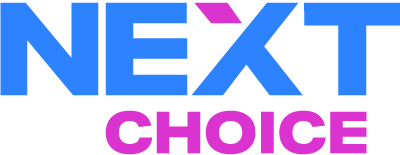10 Essential Tips for Effective Digital Strategy Consulting
In today’s fast-paced digital landscape, having a solid strategy is essential for success. Whether you’re a consultant or looking to hire one, understanding the nuances of digital strategy consulting can make all the difference. In this blog post, we’ll explore ten essential tips that will help you navigate the complexities of digital strategy consulting with ease and confidence.
1. Understand Your Client's Needs Deeply
The foundation of effective consulting is a thorough understanding of your client’s specific goals and challenges. Take the time to ask questions and listen actively. Remember, the more you understand their vision, the better you can tailor your strategies to align with their objectives. Engaging in open dialogue is crucial—not just during initial meetings, but throughout your relationship. This ongoing communication ensures that both you and your client are on the same page and can adapt as necessary.
Additionally, consider using surveys or questionnaires as tools to gather deeper insights into their needs after the initial discussions. These can unveil perspectives that may not surface during one-on-one conversations. Overall, understanding your client's needs lays the groundwork for a successful consulting relationship.
2. Stay Updated on Market Trends
The digital world is constantly evolving. Regularly refresh your knowledge about the latest trends and technologies to provide the best advice. A consultant who is knowledgeable about current events in the digital sphere is not just someone who can offer generic strategies; they are a trusted advisor prepared to guide their clients through change. Subscribe to industry newsletters, attend webinars, and engage with thought leaders on social platforms to remain in the loop.
Moreover, don’t just follow the trends; analyze them. Understand how emerging technologies could impact your clients’ businesses and be ready to pivot your strategies to adapt. This proactive approach will enhance your credibility in the eyes of clients and differentiate you from others in the field.
3. Leverage Data-Driven Insights
Using data analytics can guide your strategies effectively. Make data-driven decisions to improve outcomes and foster trust with clients. When presenting strategies, back your suggestions with relevant data and statistics. This approach not only enhances your arguments but also builds client confidence in your expertise. People want to see evidence that the strategies you propose are not just theoretical but grounded in real-world data.
Aside from using analytics, be vigilant in interpreting the data. Understanding what the data actually means in the context of their specific business can lead to insights that generate significant value. Encourage your clients to embrace a data culture—one where insights are routinely monitored and evaluated.
4. Build a Comprehensive Framework
A structured framework helps streamline your consulting process. Develop a clear plan that outlines steps from strategy creation to implementation. By having a detailed framework not only do you ensure a systematic approach to your consulting projects, but you also make it easier for your clients to follow along. This transparency can reduce anxiety over the unknowns and create a sense of partnership.
In your framework, incorporate key milestones and check-ins. This way, you can maintain accountability and gauge progress effectively. Over time, you may find that refining your framework based on feedback leads to an even smoother consulting process, making it a vital living document.
5. Foster Collaborative Relationships
Consulting is a two-way street. Work closely with your clients to create a partnership that enhances communication and expectations. Building camaraderie can enhance the consulting experience for both parties, ensuring that everyone involved feels valued. Foster an environment where clients can feel comfortable sharing ideas, concerns, and feedback.
Collaboration can also extend to cross-functional teams within the client’s organization. Facilitate discussions between stakeholders from different departments to ensure that your strategies are comprehensive and consider various perspectives. This holistic approach not only enriches the consulting project but also promotes client buy-in.
6. Utilize Technology Efficiently
Incorporate the right tools and platforms to streamline your workflow. From project management tools to analytics software, technology can boost efficiency. Stay current on the tools available in the market to find those that best meet your needs and the needs of your clients. The right technology can simplify communication, manage timelines, and keep track of deliverables.
Be mindful to train your clients on how to use these tools effectively as well. If they understand technology better, they'll contribute more effectively throughout the consulting process. This empowerment can lead to better results, strengthening your role as their guide.
7. Tailor Strategies to Each Client
Every client is unique, and so should your strategies be. Customize your approach to fit their distinct business realities. This may mean conducting in-depth research to understand their industry, competition, and customer base. A cookie-cutter strategy rarely succeeds in today’s diverse market landscape.
Moreover, ensure your recommendations align with their company culture. An approach that resonates with employees can lead to better implementation and ultimately success.
8. Monitor Progress Regularly
Set up metrics to track progress and outcomes. Regular monitoring allows you to adjust strategies as needed for optimal results. Share these metrics with your clients to keep them in the loop. This transparency fosters trust and demonstrates that you are actively engaged in their success.
Encourage regular feedback sessions to evaluate what is working and what isn’t. These conversations can uncover valuable insights and strengthen the consultant-client relationship.
9. Embrace Feedback and Adapt
Encourage clients to provide feedback. Being open to suggestions will aid in refining your strategies and improving client satisfaction. Client feedback is a treasure trove of information that can inform your future consulting engagements.
Adaptability is key in consulting. The willingness to pivot in response to new insights not only enhances the current project but also positions you as a resource for future projects.
10. Continue Learning and Evolving
The field of digital strategy consulting is always changing. Commit to ongoing education and skill development to stay relevant. This could mean attending workshops, pursuing certifications, or simply dedicating time each week to read up on new trends. It is essential to remain curious and willing to explore new ideas.
Moreover, consider sharing your insights with clients through newsletters or blog posts. This not only positions you as a thought leader but also adds value to your clients by keeping them informed of the latest industry shifts and innovations.

